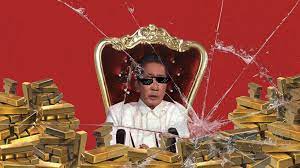EDITORIAL: Tiny parties, giant power
EDITORIAL COLUMN
Tiny parties, giant power
.
After a week of what must have been intense negotiations with a small coalition party bloc on their quota of political positions, the administration of Prime Minister Gen Prayut Chan-o-cha has managed to survive, for now. These small parties, however, will remain a thorn in the side of the coalition government given its razor-thin majority.
The latest saga clearly demonstrates the unsettling reality about how the election law and rules have been re-written and twisted to facilitate this government’s formation and give small parties power they don’t deserve.
Nine of the 10 parties yesterday said they will not withdraw from the coalition. The ruling Palang Pracharath Party (PPRP), the political machine carved out from Gen Prayut’s former military junta, said the cabinet will next week mull their proposals for political positions.
Only the Thai Civilized Party has left the government, with its controversial leader Mongkolkit Suksintaranont declaring it will be an independent opposition party.
But these 10 small parties should not have got into parliament in the first place.

When unofficial results of the March general election were made known to the public, the media and political observers came up with a list of potential 150 party-list MPs based on the calculation method specified in the constitution and the election law. None of the 10 parties were included in the list because it was obvious their popular vote failed to meet the minimum threshold required.

And it was pretty clear the PPRP lost the election because, under the poll law, the seven anti-junta parties should have had a slight majority in the Lower House. But then along came a white knight in shining armour for the PPRP in the form of the Election Commission (EC), whose bosses were selected by the junta-appointed National Legislative Assembly. The EC devised a new formula for the calculation of party-list seats, which contradicted both the constitution and the election law.
The EC formula resulted in a handful of seats which should have gone to the anti-junta political camp being awarded to the 10 small parties who had made their support for the junta known.
It is true Gen Prayut would have won the prime ministerial vote in parliament anyway even if he hadn’t have a majority in the Lower House. The junta-sponsored charter gives unprecedented power to 250 senators, who were handpicked by Gen Prayut, to join the vote with the Lower House and they all proceeded unsurprisingly to pick the candidate who gave them their jobs.
However, as a government with a minority in the Lower House, Gen Prayut would not have managed to get anything done. Therefore, the EC’s invention with a rather odd formula came to the rescue.
Even if the anti-junta camp managed to form a government, they would also have had a thin majority. This is a result of the new election system, designed by the junta-appointed lawmakers to reduce the chances of large parties winning a landslide victory.
It is clear the new election system has done more harm than good when it comes to the stability of this and future governments.
The constitution and the election law that resulted in the government’s narrow majority need to be rewritten, otherwise Thailand will not enjoy the kind of political stability that is vital for economic development.
The country also needs to do away with the EC’s calculation formula which will continue to reward small parties with MPs in the House and power they don’t deserve.
EDITORIAL
BANGKOK POST EDITORIAL COLUMN

 All photographs, news, editorials, opinions, information, data, others have been taken from the Internet ..aseanews.net | [email protected]
All photographs, news, editorials, opinions, information, data, others have been taken from the Internet ..aseanews.net | [email protected]
For comments, Email to :D’Equalizer | [email protected] | Contrib










